Share
Medical Matters: A look at complaints data from 2024
Back to MessengerRead time: 3 minutes
By Dean Blue, Director, Professional Conduct
Over the last few years, CPSA’s team in Professional Conduct have done a lot of work to improve and streamline the complaints process. We understand complaints are stressful for both the physician and the complainant, and are always looking at how we can enhance the process to ensure complaints are resolved in a timely manner, based on the facts of each individual case.
The most significant change we’ve implemented has been the introduction of the Complaints Centre in early 2024, through which complaints can be submitted via an online form. This has streamlined our internal practices so we can process complaints more efficiently. It has also improved accessibility for complainants, which is important—an essential part of profession-led regulation is accountability.
Like many organizations, we often look at data to recognize patterns and identify areas for improvement. In 2024, we received more than 1,500 complaints; below are some key complaint statistics from the year.
Demographics
The majority of physicians who received a complaint in 2024 are male[1], between the ages of 45-54 and practising family medicine in either the Edmonton or Calgary metro zones. This aligns with the overall demographics of the profession in Alberta.
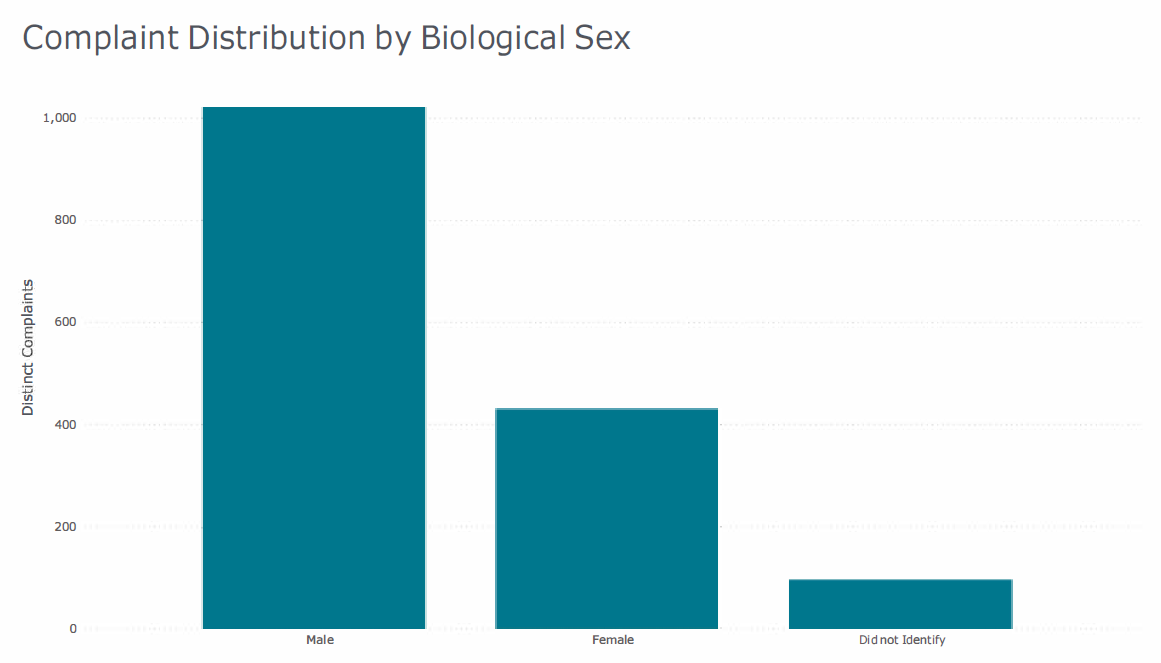
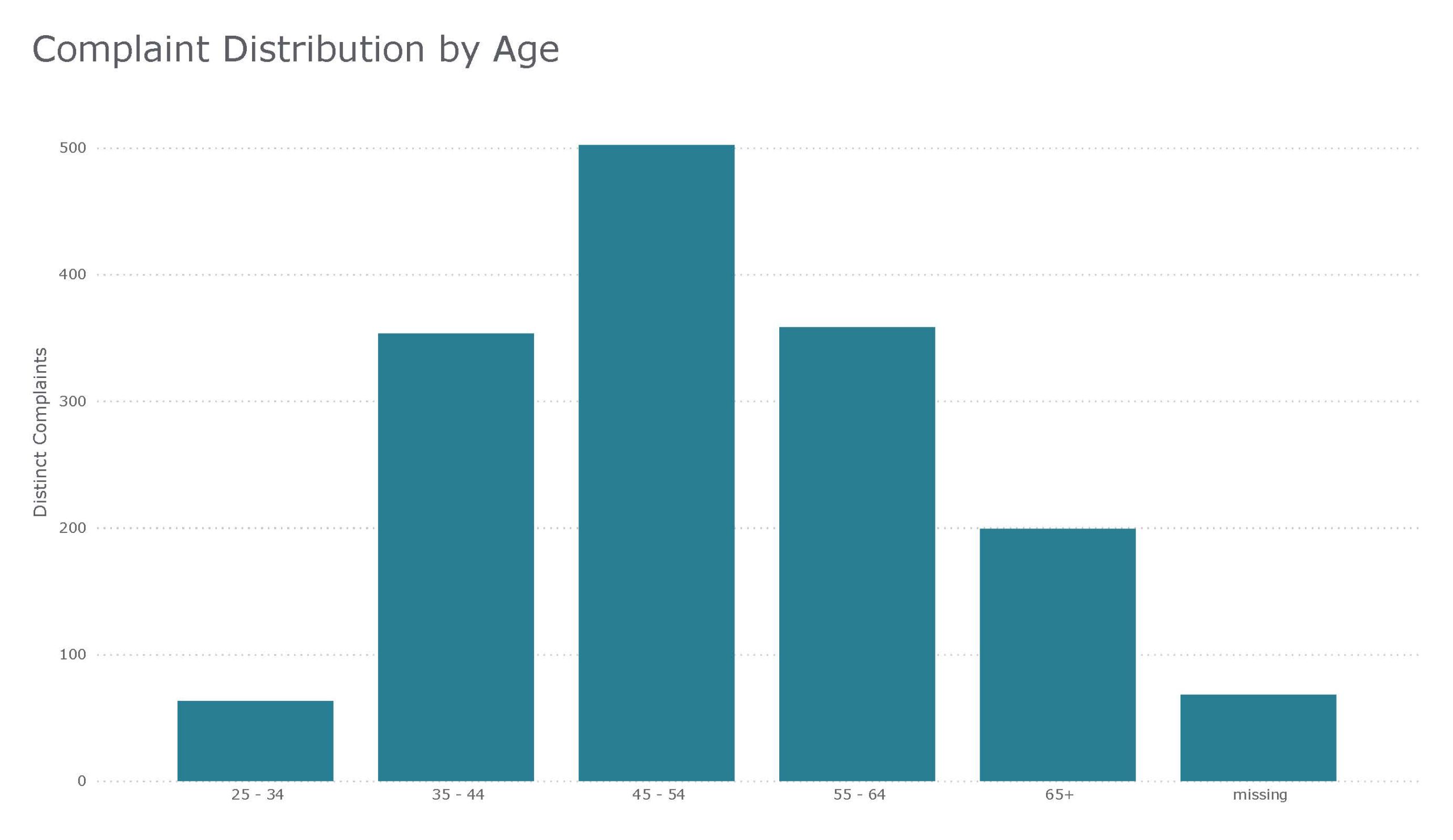
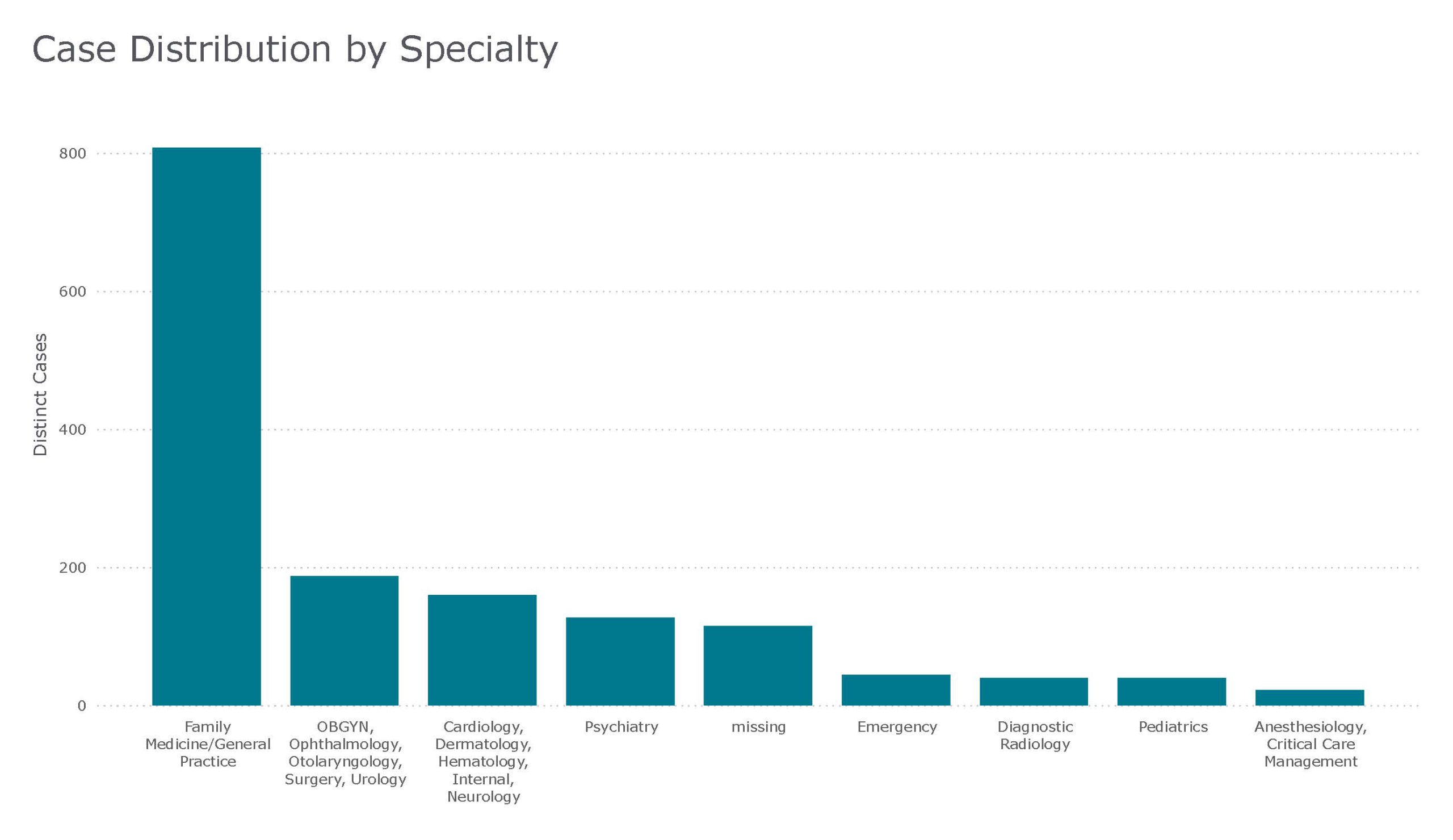
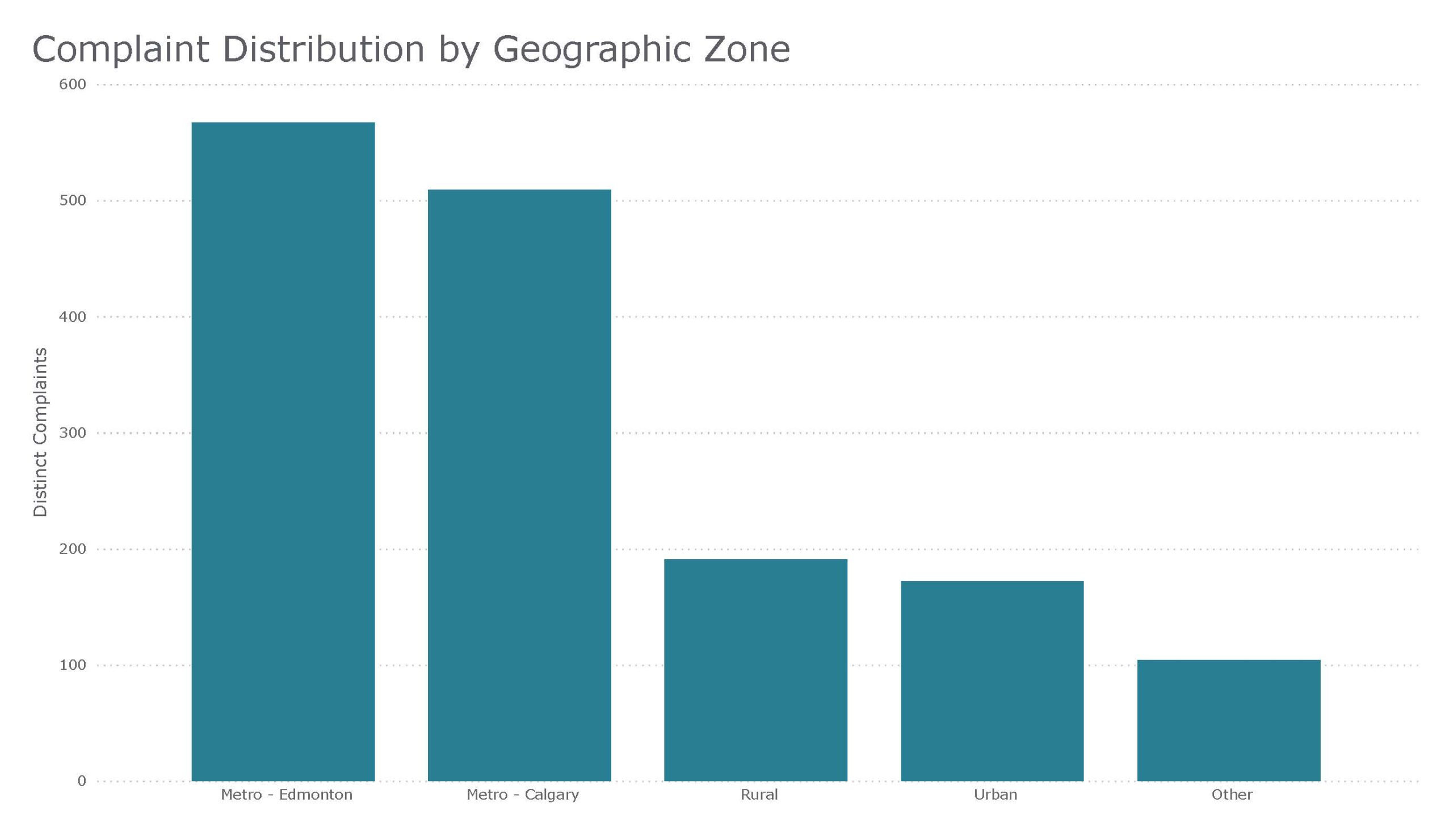
Complaint submissions
The majority of complaints in 2024 were submitted by patients and involved one issue (quality of care, diagnosis, communication, boundary violations, etc.). Few complaints are about more than two issues—the more complex a complaint, the more issues it is likely to involve.
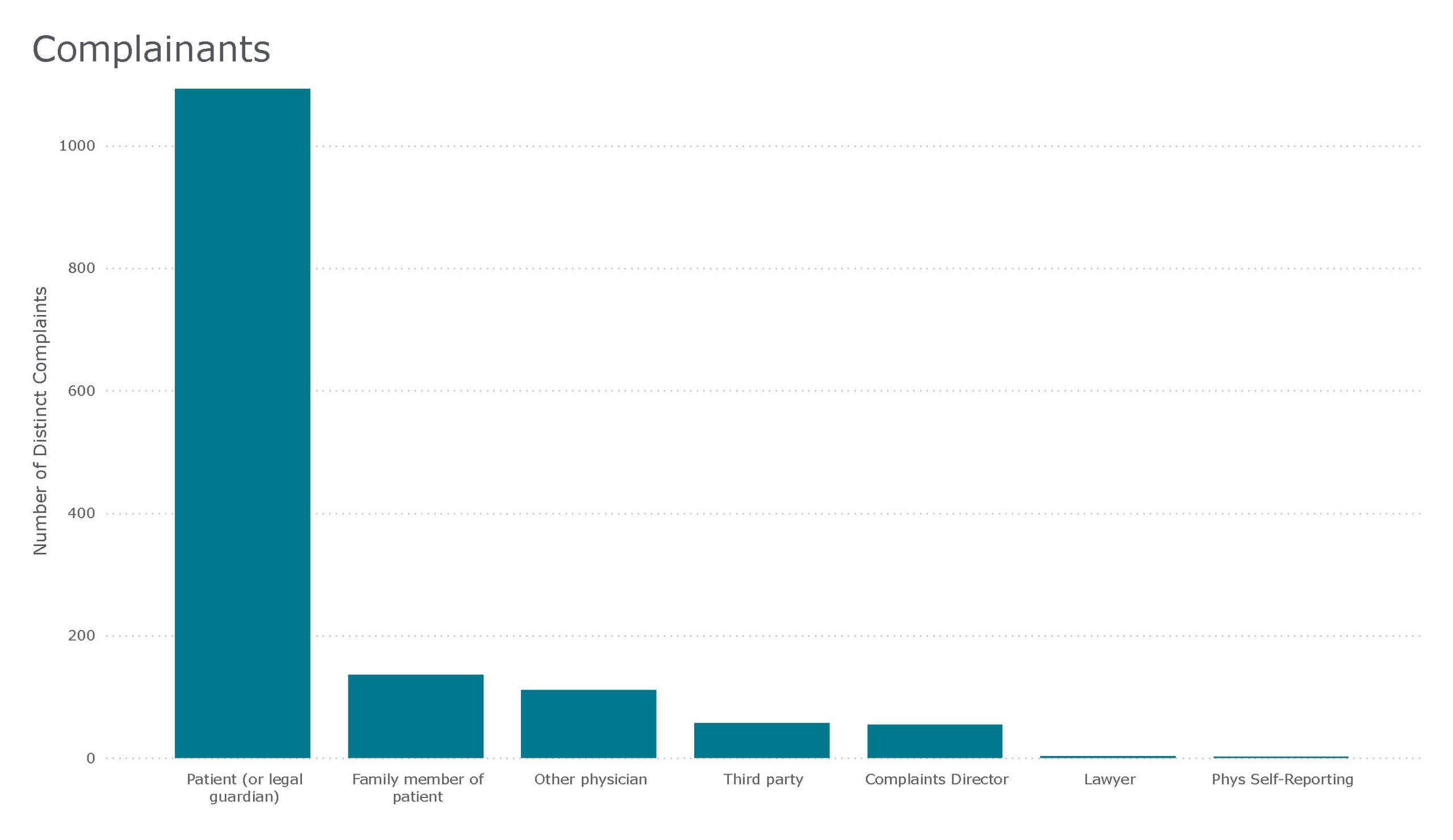
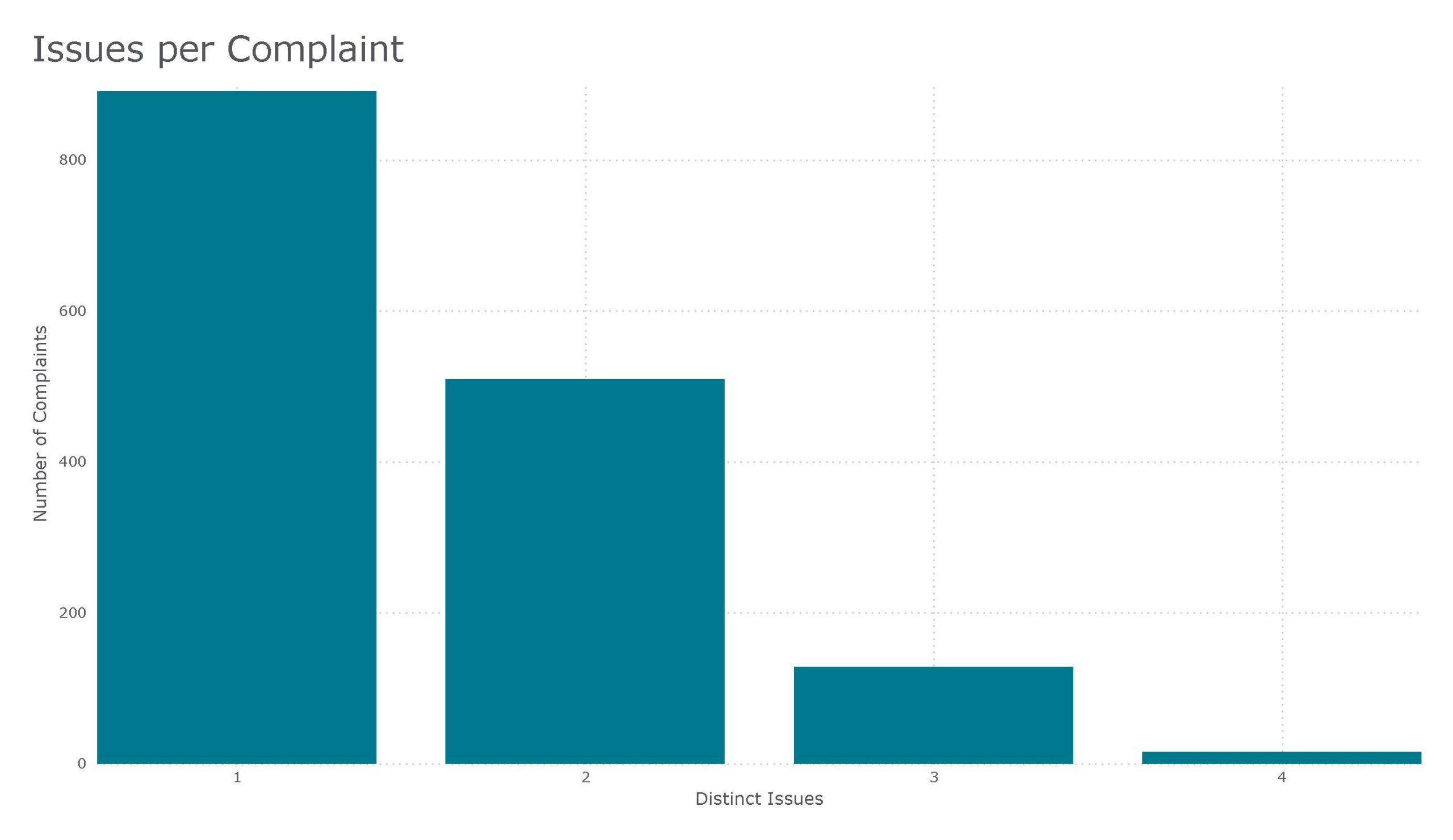
Multiple complaints
While complaints are not uncommon and most physicians will receive at least one at some point in their careers, a physician getting more than one complaint in a year is rare. In 2024, less than 20 per cent of the physicians who received a complaint received more than one.
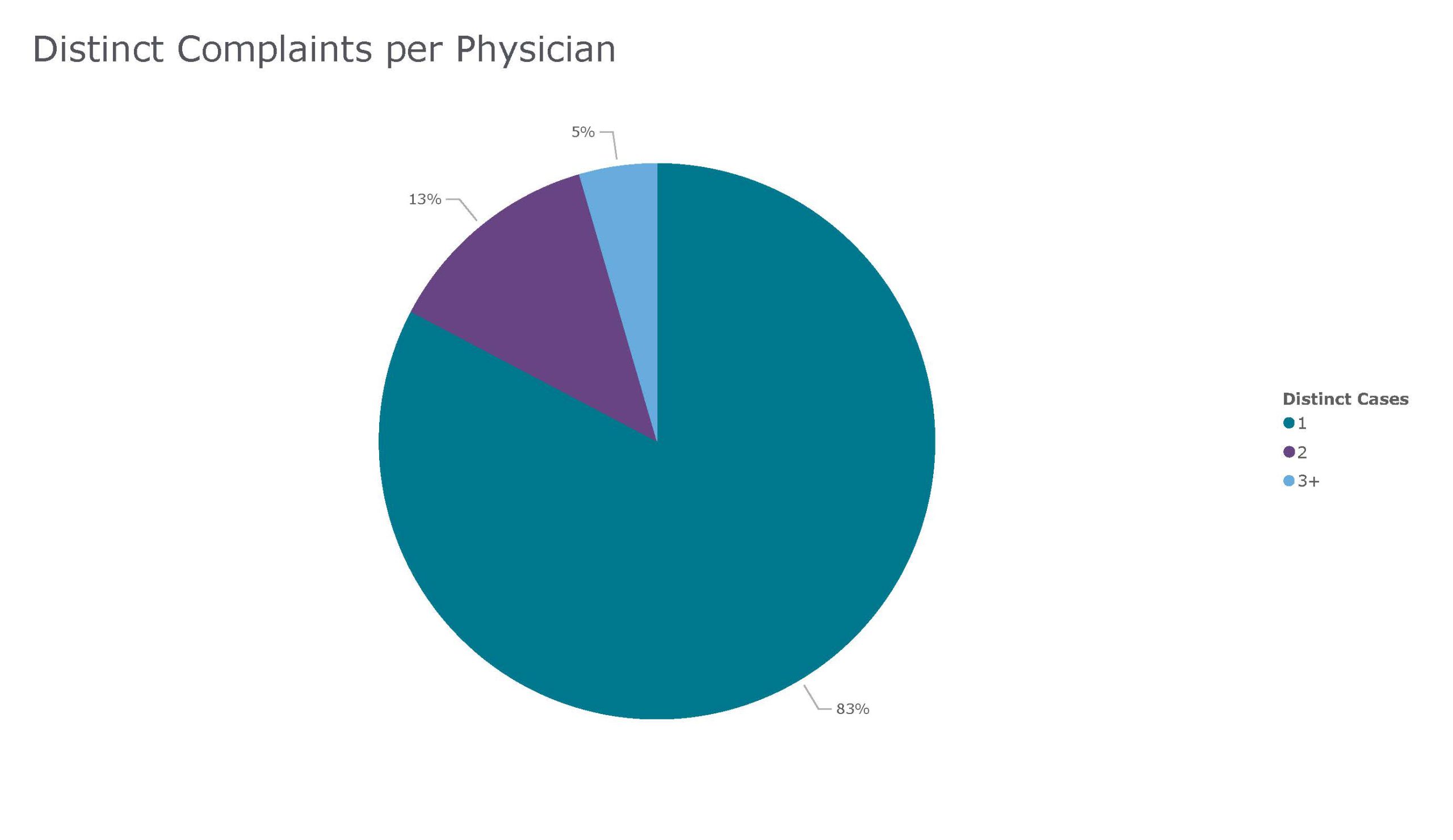
Closed complaints
Complaints can be closed in a number of ways. Based on past years experience, an average of 55 per cent of complaints are dismissed outright, 35 per cent are dismissed after investigation and eight per cent were settled through resolution (this usually involves educational opportunities and practice improvements, agreed upon by both the complainant and regulated member). Less than two per cent of complaints ended up being referred to a Hearing Tribunal.
Of the complaints filed in 2024 that have been closed, most were dismissed. A dismissed complaint can be the result of several factors, such as insufficient evidence or the nature of the complaint is not something CPSA has the authority to act on under the HPA. Complaints that are still open will likely proceed to investigation or an expert review, which takes longer to complete.
As captured in the chart below, there are times when we are unable to proceed with a complaint. This typically means the complaint submission was missing information, the complainant was unresponsive to our requests for additional details, or the subject of the complaint was not regulated by CPSA (e.g. from another health profession).
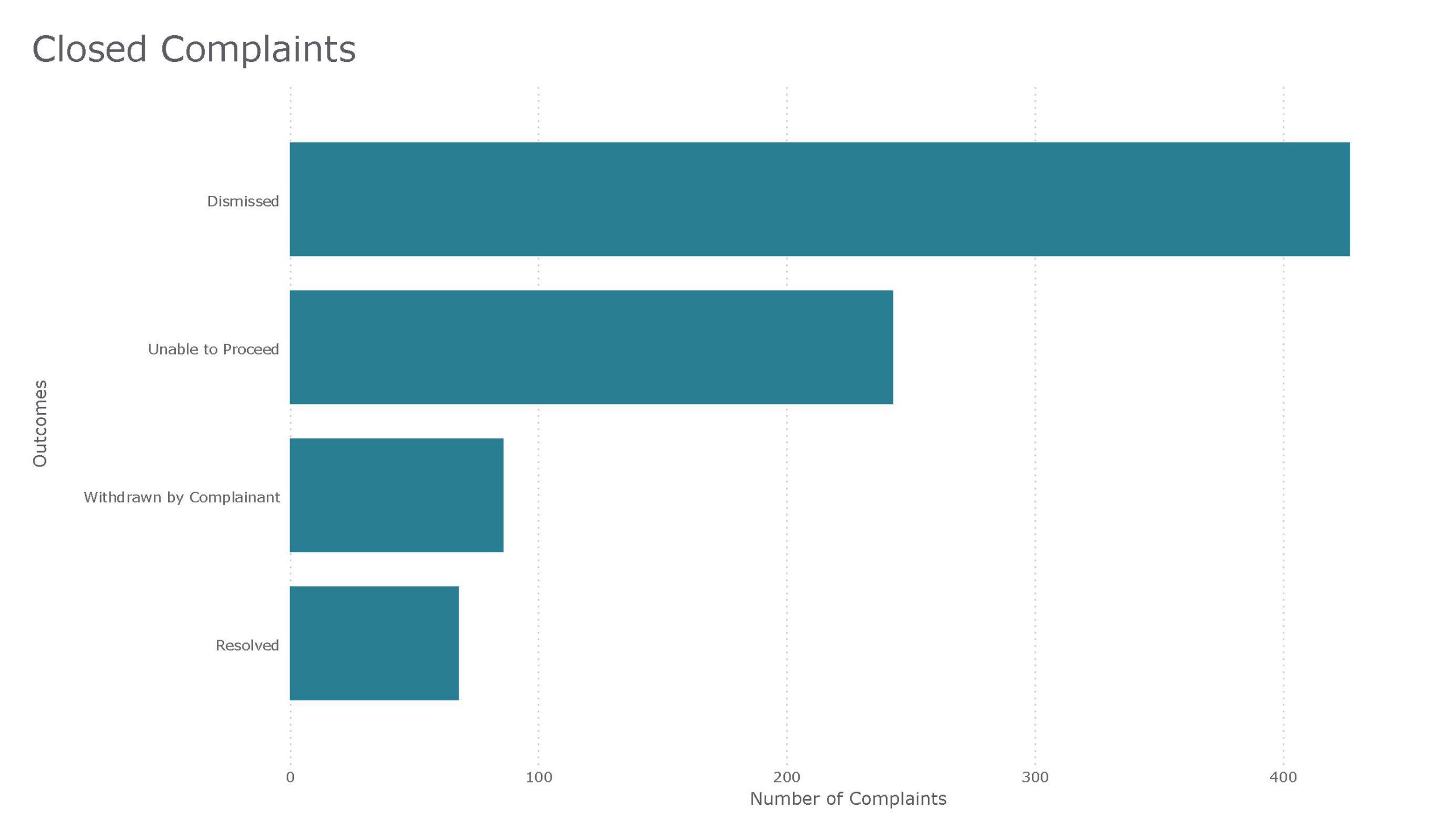
So what does this mean?
This is just a snapshot of what complaints looked like in 2024: while some complaints are complex and can take years to move through the process, most are relatively simple and can be resolved quickly. In the coming years, we will have access to more data through the Complaints Centre, which will make it easier for us to identify year-over-year shifts and identify how to help physicians and complainants throughout the complaints process. We will continue to work closely with CPSA’s Analytics, Innovation & Research team to review and analyze our complaints data through an evidence-based lens. This will allow us to proactively work with our partners so we can offer better support and guidance to regulated members as they provide safe and high-quality care.
To find out more about CPSA’s complaints process, visit our website. and stay tuned to future issues of The Messenger for new articles in our Professional Conduct Corner series.
[1] This information is provided as part of the registration process.
| Dean Blue joined CPSA in 2022 as the Director of Accreditation, before transitioning to his current role as Director of Professional Conduct in 2023. Prior to his move into health regulation, Dean worked as the Senior Public Health Advisor in Alberta Health’s Office of the Chief Medical Officer of Health. During the COVID-19 pandemic, he was the Section Chief of Policy and Planning in the province’s Health Emergency Operations Centre. |





















As much as it’s needed for a smooth complaint process to help complainant ,there should be some accountability where the complaint is completely false and is based on vengeance against the physician .
Easier complaint process has only increased the stress for the physicians with not much better outcome in the care .
Thank you for reading and taking the time to respond. As the regulator, CPSA has a responsibility to take every complaint seriously. We appreciate how stressful the complaints process can be, especially when the issues brought forward prove to be unfounded. We are always looking for ways to improve the process and for physicians who need extra support, resources are available through the AMA’s Physician and Family Support Program. Thanks again, we appreciate your feedback.
The complaint process in general takes far too long. While the time frames may be in accordance to Canadian system standards or comparatives, this in itself is very unhealthy for patients, practitioners and the profession. The college should address this failing.
J Bristowe
Thank you for reading and taking the time to respond. While straightforward complaints are often resolved relatively quickly, more complex complaints require additional resources and often take longer. I agree a lengthy timeframe is not ideal and we have been working to address gaps in the process to make it more efficient, without compromising our regulatory responsibilities. I appreciate your feedback and we will continue to look for ways to improve the process.
Very interesting and well put together article. As time goes on and if possible list the top 5 complaints in a bit more detsil
Thank you for taking the time to read and provide your feedback, I’m glad to hear you enjoyed the article. I appreciate the suggestion and we will certainly keep this topic in mind to share with the profession in the future. Thanks again for the positive feedback.
Thank you for the valuable information.
I suggest adding a fee for patients to file a complaint.
It is a very simple process for patients to file a complaint on line at no cost.
In the meantime it is very stressful for physicians to right their defence and prepare the proper documents it is time consuming and nerve wrecking
The patient will think twice to do it specially if they know it is just to punish or revenge for their doctors
Thank you for reading and providing your feedback. Charging a fee to submit a complaint is not allowed under the Health Professions Act—having an accessible complaints process is CPSA’s responsibility as the regulator and an important part of self-regulation. We have implemented measures to help educate Albertans on what’s involved in a complaint, such as a video on our website about the process that must be watched in full before the complaints form can be accessed. We continue to look for ways to improve and I appreciate your suggestions.
Complaints about matters not involving competency or neglect should not be on the table.
Take hours to respond and lots of stress.
In our area one toxic person complaint against 3 doctors within 3 months!!!( we are 6 doctors working with burnout due to workload) One doctor left because of this baseless complaints. After 6 months and many hours spent on letters – all the complaints were dismissed. Complaints should be handled locally first. Every complainer go straight to the College!! Not right!!
Thank you for reading and sharing your perspective. High-quality medical practice involves more than just providing front-line care and it is CPSA’s responsibility as the regulator to take every complaint seriously. We continue to look for ways to make the process more efficient and less burdensome, while still meeting our responsibility to Albertans. We appreciate how many physicians are dealing with burnout and the AMA does have support available through their Physician and Family Support Program. Thanks again for your feedback.
I would be curious to see the number of complaints/year in the years before the implementation of the Complaints Centre in early 2024 – both pre-2019 (pre-pandemic) and 2019-2023. I wonder if there has been a large increase in complaints received, and if so the amount of increase, with the introduction of online submission.
Thank you for reading and taking the time to comment. A five-year history of complaints data, including total number of complaints per year, is available on our website: https://cpsa.ca/about-cpsa/statistics/
Our 2024 numbers are still being finalized, but we did see an increase last year in how many complaints were submitted. This is likely at least partially due to the launch of the Complaints Centre, but once we have a few more years of data we’ll be better able to identify any patterns.
Thanks again for reading The Messenger.
Though we all dread complaints, it is valuable to review and put our experiences into focus.
Now we need to be seen as a profession best able to self-regulate and improve its own process.
Perhaps we can focus attention on colleagues most likely to receive a complaint and increase attention to risk factors through education.
Thank you for reading and taking the time to share your perspective. While they can certainly bring stress, I agree that complaints are an important part of profession-led regulation and appreciate that you see them as an opportunity to learn and self-reflect.
Thank you for the suggestion of focusing on risk factors. This is actually something CPSA’s Research & Evaluation Unit does as part of their work, to proactively identify physicians who may be in need of support and if needed, refer them to our Competence team to see if there are opportunities for education and improvement. You can find out more here: https://cpsa.ca/physicians-competence/physician-assessment-feedback/
Thanks again for reading and I appreciate your feedback.
The current complaints process is pretty good, however there is a gap. There are numerous issues that I see in the clinic I work at but cannot report since I will not be anonymous if I report it, and it is really bad because I wish I could report it and ensure that unlicensed people were not practicing. Maybe this is something the CPSA can look into? Perhaps a whistleblower protection of some kind?
Thank you for reading The Messenger and providing your perspective. Under the Health Professions Act, CPSA cannot accept anonymous complaints. If a regulated member knows a colleague has behaved in an unprofessional manner, under our standards they are required to notify CPSA: https://cpsa.ca/physicians/standards-of-practice/duty-to-report-a-colleague/. Thanks again for the feedback.